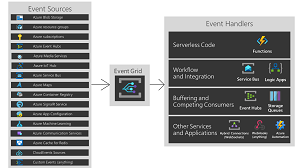News
Azure SDK: Mixed Reality and Event Grid Client Libraries for .NET Go GA
The latest update to the Azure SDK adds Mixed Reality and Event Grid client libraries for .NET to the cloud platform's dev tooling.
Note that Microsoft's "Mixed Reality" is not the "Augmented Reality" popularized by Pokemon GO mobile apps -- simply superimposing digital displays on views of the real world. It has more to do with HoloLens rather than phones, with Microsoft describing it like this:
"Most mobile phones on the market today have little to no environmental understanding capabilities. The experiences they offer can't mix physical and digital realities. The experiences that overlay graphics on video streams of the physical world are augmented reality. The experiences that occlude your view to present a digital experience are virtual reality. The experiences enabled between augmented and virtual reality form Mixed Reality:"
- Starting with the physical world, placing a digital object, such as a hologram, as if it was there.
- Starting with the physical world, a digital representation of another person--an avatar--shows the location where they were standing when leaving notes. In other words, experiences that represent asynchronous collaboration at different points in time.
- Starting with a digital world, physical boundaries from the physical world like walls and furniture appear digitally within the experience to help users avoid physical objects.
Thus Microsoft offers its HoloLens and the Samsung HMD Odyssey+ as devices to be targeted with Mixed Reality apps.
Azure Event Grid client libraries, meanwhile, help developers build event-driven applications that listen and react to events triggered by sources such as Azure services via HTTP-based event handling with Azure Event Grid. The Azure Event Grid libraries for .NET include both Client and Management SDKs.
 [Click on image for larger view.] Event Grid (source: Microsoft).
[Click on image for larger view.] Event Grid (source: Microsoft).
In a March 19 blog post specifically devoted to the libraries, Microsoft said, "The new Event Grid client libraries allow Event Grid developers to take advantage of the cross-service improvements made to the Azure development experience, such as:
- Core credential types to share a single authentication approach between clients
- A unified logging and diagnostics pipeline offering a common view of the activities across each of the client libraries
"In particular, the new Event Grid libraries use the core AzureKeyCredential type for authenticating the service client."
Other features that became generally available or received improvements are detailed in a separate March 19 blog post:
- Azure Cosmos DB client library for Java is generally available
- Java libraries upgraded to support Jackson from 2.11.3 to 2.12.1, Reactor from 3.3.12.RELEASE to 3.4.3 and reactor-netty from 3.3.12.RELEASE to 3.4.3
- Java Azure Core library is releasing a new GA
- Azure Communication Services Phone Numbers library has added support for Azure Active Directory Authentication
- JavaScript/TypeScript Azure Core Client 1.0.0 is GA and Azure Core Rest Pipeline 1.0.0 is GA
About the Author
David Ramel is an editor and writer at Converge 360.